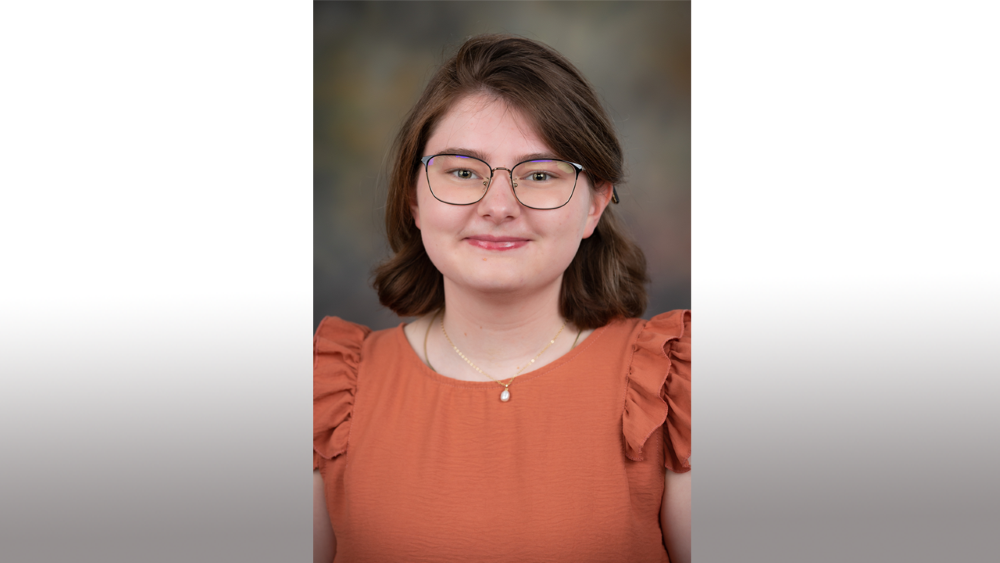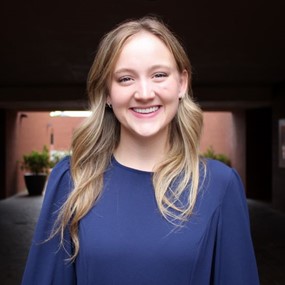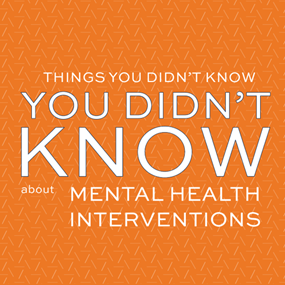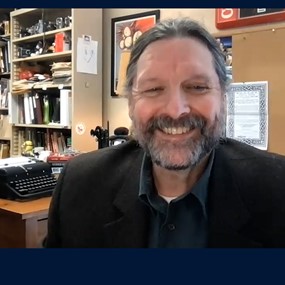Tech-savvy yet dissatisfied: Auburn student researches attitudes toward post-pandemic remote work

Students and professionals alike have had to adapt to working remotely during the COVID-19 pandemic and beyond. While the pandemic is over, many policies and practices adopted during shutdowns have persisted, resulting in a wide array of remote and hybrid plans and return-to-office mandates. As more students who attended school throughout the pandemic enter the workforce, understanding attitudes and perceptions of remote work becomes critical.
Psychology senior Emily Findlay examined students' attitudes toward remote work following the COVID-19 pandemic, revealing surprising insights into their confidence levels and preference for in-person engagements.
Findlay's desire to study remote work was sparked by her interest in industrial and organizational psychology. Her fascination with workplace psychology stemmed from her family's experience with the transition to remote work, which soon led to questions about differences in perceptions.
"I was online at school my senior year of high school and working alongside my parents. I saw their struggle with moving to remote work. It got me really interested in that transition and how people work together," said Findlay. "Then I came to Auburn and I was in class, the professor asked a group of kids whether or not they would be interested in working entirely remotely. Only a couple of people raised their hands. I found this surprising because our generation is very technologically advanced."
Findlay was granted the opportunity to study the topic through her involvement in the Social Interaction and Policy Lab with Psychological Sciences Lecturer Sara Driskell. Driskell presented Findlay with the undergraduate research fellowship, which allows students to propose their own research interests. Once accepted, Findlay conducted her study, surveying nearly 600 students.
The survey resulted in a negative correlation between technological skill and satisfaction. Students reported high confidence in their ability to navigate and complete remote work but reported low value and satisfaction with online work.
Additionally, Findlay found a disparity between technological skill and confidence in communicating through aspects of remote work. Participants reported high confidence with writing communications such as emails but weren't necessarily comfortable with aspects such as conducting Zoom meetings.
"We're really interested in online communication because that was correlated with confidence as well as motivation in remote work. We're hoping that through improving those communication skills, the motivation and self-efficacy will improve as well," said Findlay. "We're at a really interesting time where work is flexible and there's a lot of potential to change and make improvements if provided the right resources."
Undergraduate research is critical for undergraduate psychology students who wish to attend graduate school. Findlay's research was conducted in Driskell's Social Interaction and Policy Lab, supported by Auburn's Undergraduate Research Fellowship Program.
In addition, Findlay is completing the Industrial and Organizational Psychology Accelerated Bachelor's/Master's program. The IO Psychology ABM allows students to begin their graduate coursework as undergraduates. If accepted, students are able to complete their master’s degree the following year.
"You apply your junior year, and then depending on how well you do in your courses, you get invited to go to grad school, which is really awesome," said Findlay. "I applied and took two grad classes last semester and I'm taking one more this semester. I'll graduate in the spring with my bachelor's, and then I come back for one more year and graduate with my master's in the spring of 2025. It's a great program."
Learn more about psychology in the College of Liberal Arts.






